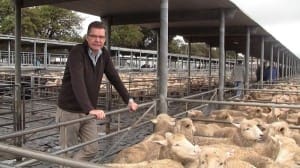INFORMAL trading of livestock between tree-change hobby farmers or peri-urban landholders was identified as a potential biosecurity risk at a workshop in Melbourne last week.
The Livestock Biosecurity Network workshop brought together researchers and extension experts from industry and government to plot a path forward for educating hobby farmers and peri-urban land holders on biosecurity practices.
LBN regional officer for Victoria and veterinarian Dr Pat Kluver said a particular area of risk was the informal trading of sheep, cattle and pigs between neighbours.
“Informal trading means traceability is compromised and will slow or hinder control in the event of an emergency animal disease (EAD) outbreak,” he said.
“Any focus in the area should aim to increase compliance with traceability systems and must include the pig trading small lot holder as this is a particularly high risk for the introduction and establishment of Foot and Mouth disease (FMD).”
Treechangers need biosecurity education
The Livestock Biosecurity Network said with tree-change hobby farmers now outnumbering professional farmers in some areas, moves are afoot to improve their knowledge of biosecurity to minimise pest and disease risks to the wider rural industry.
Dr Kluver said while peri-urban farmers bring with them a range of skills and experiences which enrich rural communities, their lack of animal management knowledge could pose a biosecurity risk to the livestock industry.
“Rural Australia has experienced a demographic shift in the last 40 years where there has been a shift from a landscape dominated by large commercial family farms, to one we now see which includes large farms interspersed with rural residential properties and weekenders.
“Although tree-changers potentially lack experience in certain areas, they are also commonly knowledge seekers and motivated to do the right thing by their animals and neighbours,” he said.
Traditional farming training programs have been focussed on providing advice to large-scale professional producers, but the Melbourne workshop looked at developing a strategy specifically to meet the needs of peri-urban landholders and ensure they knew how to prevent, detect and treat an animal disease outbreak.
Peri-urban farmer extension needs co-ordination
Dr Kluver said the higher than normal turnover of small rural holdings, and the fact that land owners with city professions were often present on their properties only on weekends, made the sector a difficult group with which to communicate.
“Peri-urban farmer extension requires a co-ordinated response from all relevant stake holders, to ensure better use of existing resources,” he said.
“Connecting life stylers to professional farmers has been suggested as one way of increasing biosecurity knowledge.”
Other strategies could include contacting landholders through catchment management authorities and natural resource management bodies such as Landcare.
“We want to use existing information portals, existing groups and try to give them some biosecurity messages along with the Landcare and ecology messages which drive many of these people.”
More information on livestock biosecurity is available at www.lbn.org.au
Source: The Livestock Biosecurity Network




HAVE YOUR SAY